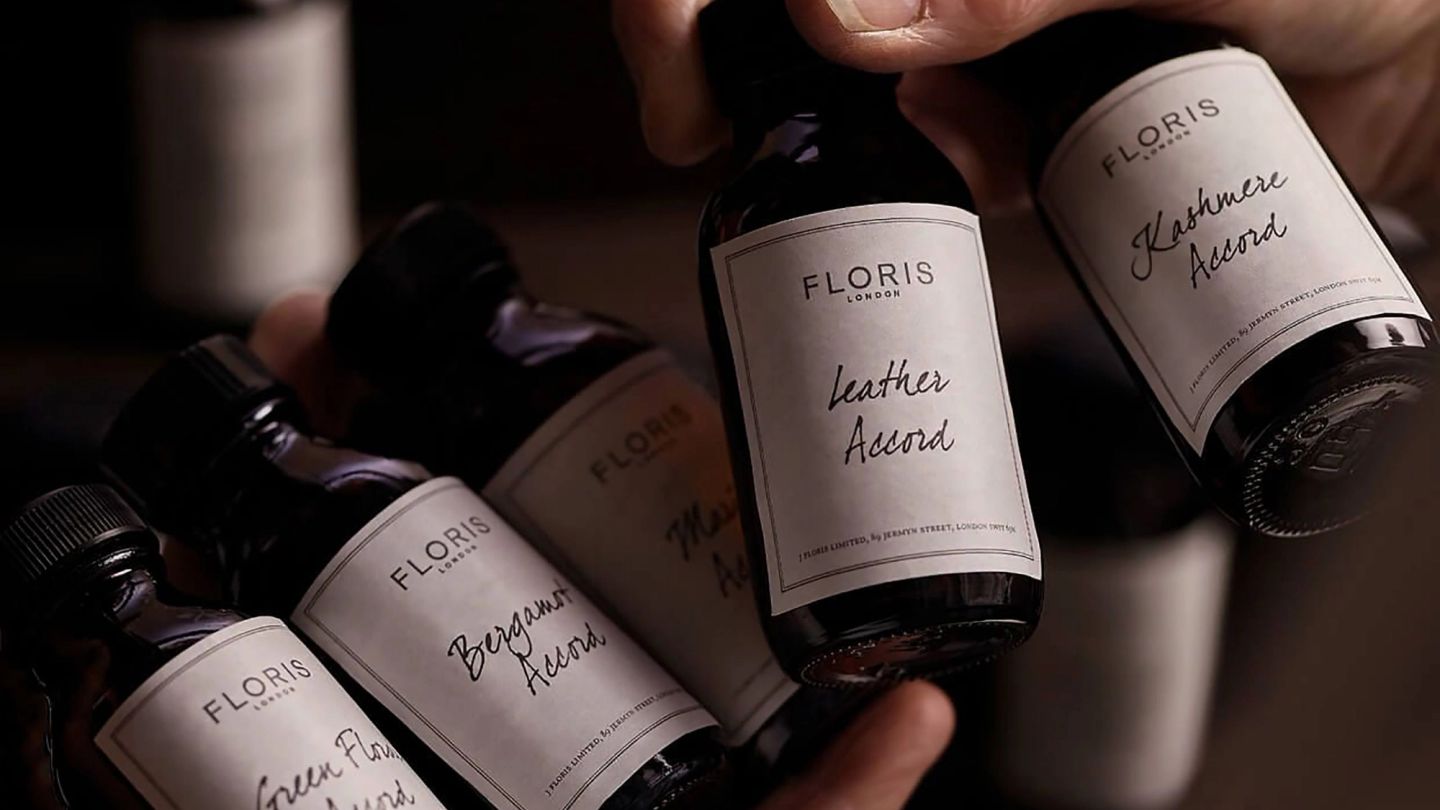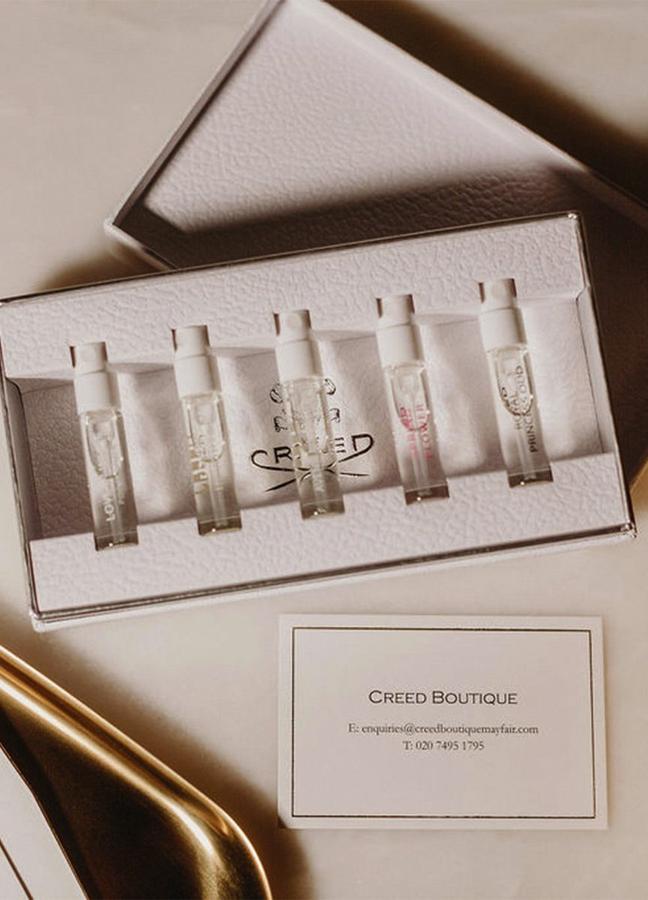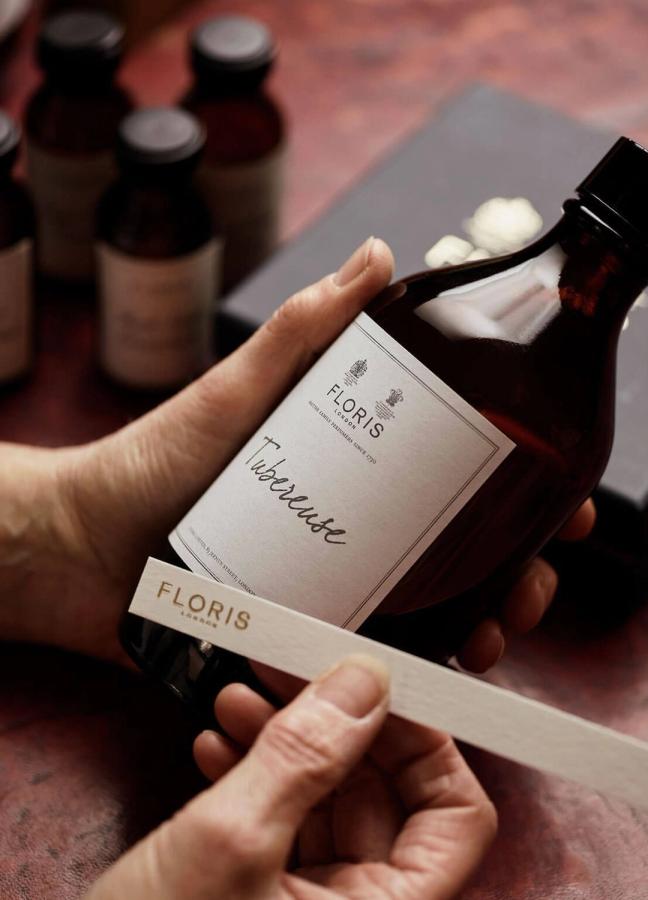

Words: Jonathan Wells
Everyone wants to feel special; individual. We love having that ‘special something’ that sets us apart from other modern men — whether that be a particular pair of sunglasses, a one-in-a-million motor or an obscure cocktail that only we ever order at the bar.
But perhaps the most salient ‘special something’ is a signature scent. From ‘Eau de Parfum’ to ‘Eau de Cologne’, there’s a whole world of heady, hearty, fruity and floral options out there — and it’ll pay to discover the fragrance that works for you.
Why? Several reasons. Firstly, smell is the most powerful, evocative sense — not to mention the quickest memory inducer. That means that friends, family and casual acquaintances will be more likely to remember you if you align yourself with a singular, signature scent. Plus, from sweet spices to citrus oils, there are some wonderful olfactory options out there.
So how do you figure out which aftershave is right for you? Gentleman’s Journal has turned to three experts from some of London’s largest perfume houses to discover the science behind finding your signature scent — and how everything from age and skin type to personal preference can affect this important decision.
Why does aftershave smell different on different people?

It’s the obvious place to start. Spritz a scent on your wrist, and it may not smell as dominant or dynamic as it does on someone else. But why is that? We asked Eva Carlo, Perfume Expert for The House of Creed, to explain.
“Perfumes today are created with a mixture of synthetic and natural ingredients,” says Carlo. “And both behave rather differently on the skin. Synthetics don’t change much, if at all, as they have been engineered in the lab to behave or be perceived a certain way.
“Naturals, however,” she continues, “are multi-faceted. Some have hundreds of molecules that we still haven’t learnt how to replicate, and different skins will manifest different facets in their own unique way. That’s the reason the same fragrance will smell differently when wore by various people.”
"Everyone’s body chemistry is slightly different..."
Your first step, then, is to identify what skin type you’re working with. Because, as Alexandra Cernanova of Penhaligon’s adds, your body plays an active part in the formulation of fragrances.
“Skin is the last ‘ingredient’ of the fragrance when applied,” explains Cernanova. “Depending on how it sits on our skin and our skin reacts to it, the same fragrance can smell quite different. This depends on a lot of factors. But, mainly, on what we eat, if we smoke or not, whether we have oily or dry skin…”
“If you are male or female,” adds Edward Bodenham, the 9th Generation Perfumery Director at Floris. “What nationality you are, whether you’re taking any medication or vitamin supplements. Everyone’s body chemistry is slightly different — so this can have quite an impact on how a fragrance smells on an individual’s skin.”
As a result, your next step is to always, always test your aftershave or prospective signature scent on your skin. Because, as Bodenham emphasises: “A scent will always smell slightly differently on skin than it does on a blotter — as it warms up with your body temperature, and blends with your own unique body chemistry.”
So how do you set about finding our own signature scent?
“The easiest way,” offers Penhaligon’s Alexandra Cernanova, “would be trial and error. You would test all the different olfactive families and fragrances within them to determine which style or family you are more drawn to. Then, you ask for more examples within that field.”
It sounds like a long, drawn-out process. But nothing good ever comes easy. And, if you are intent on discovering your perfect signature scent, it’s going to take some time to wheedle out the elements and ingredients that don’t work for you.
“If a fragrance turns particularly ‘sweet’ on your skin,” explains Cernanova, “and you’re not looking for a ‘sweet’ fragrance, we would then try fresh, citrus or woody fragrances. And always applied on unfragranced skin, which doesn’t have any moisturiser or body lotion applied. That way, you’ll get a true representation of the fragrance.”
Once you’ve whittled down your selection — sorting your ‘Mossy Woods’ from your ‘Soft Florals’, or your ‘Green Notes’ from your ‘Woody Orientals’ — you must further slow the process down. Because, as Floris’ Edward Bodenham advises, taking your time can be key…
“Get to know the scent, and see how it develops over time — as the heart notes and base notes slowly reveal themselves.
“We encourage our customers to follow their instincts,” Bodenham continues, “as each of us have a unique olfactory memory bank of scents that connect with us in a positive way. So that is the best way to be steered to finding a fragrance suited to you.”

It makes sense; your signature scent should evoke positive, potent memories from your own past. So, if you grew up by the sea, perhaps an aftershave with fresh marine notes? If you fancy yourself something of a weekend woodsman, why not look to aromatic woods or oak moss? If your father happened to be a tanner, maybe you should lean towards leather?
“Because western perfumes are created to tell a story,” explains The House of Creed’s Eva Carlo. “They take you on a journey via the ingredients’ evaporation — and will evolve and change as they slowly evaporate off your skin”.
Alternatively, Carlo suggests, you could head to a perfume house for your own bespoke consultation. Like Bodenham and Floris above, many of these storied brands have been spritzing for centuries — and really know their ‘petitgrain’ from their ‘patchouli’.
“It’s impossible for someone to determine what kind of ingredients or families will suit you without having a consultation first,” says Carlo. “The guidance will be based on likes and preferences to do with lifestyle, culinary or drink preferences, favoured travel locations, clothing textures etc. The collection will then be edited to a few examples that will contrast each other to further calibrate your scent profile.”
Once you’ve found your signature scent, should you stick with it?
It’s a valid question. If everything from your skin condition to the location of your holiday home could affect the effectiveness of your signature scent, might it change during the course of your life? In short; yes.
“On a personal level,” explains Eva Carlo, “our tastes change — as does our body chemistry with age. So a perfume that you may have loved in your teenage years probably won’t be to your taste later in life. It won’t convey your character and values anymore, once you reach your 40s.
"Perfumes are created to tell a story..."
“Your body chemistry will also be making a different version of the perfume,” she adds. “Because hormones have a massive effect on how our perfume smells — as do changing diets, medical treatments and different climates. Even yearly seasonal changes can have an effect.”
So, while you may have discovered the ideal signature scent for this time in your life, it’s likely that you’ll have to did deep into those olfactory memory banks later down the line. And, even if you feel married to your first-love fragrance, there’s no harm in sampling some other options.
“I’d recommend trying other olfactive families as the time goes on,” Penhaligon’s Alexandra Cernanova agrees. “As you could discover a new favourite this way. Most people’s preferences for fragrances do evolve over time, although some do stick to s signature fragrance over many years. Whatever your preference, just have fun with it!”
Want more inspiration? These are the fragrances and aftershaves worn by the royal family…
Become a Gentleman’s Journal member. Find out more here.


